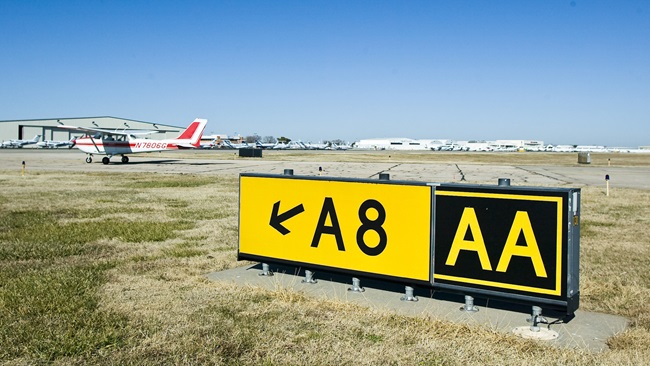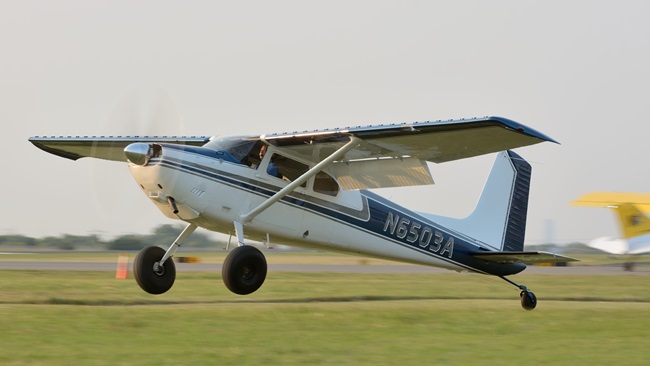AOPA's You Can Fly program receives $100,000 grant
Award from American Airlines to help fund high school curriculum development
AOPA's You Can Fly program has received a flight education grant from American Airlines that will have a “substantial impact” on the association’s work to help students discover a passion for flight and prepare for a career in aviation.
American Airlines announced the 10 recipients of awards totaling $313,000 from its flight education grant program Jan. 19 in a ceremony at the C.R. Smith Museum in Fort Worth, Texas.
“Of the nearly 600 organizations we invited to participate in our program, these 10 stood out with innovative ideas on growing and diversifying the pilot career path and creating opportunities for those who may not otherwise have the chance to learn,” said Capt. David Tatum, American’s director of Pilot Recruiting and Development.
“You Can Fly is focused on developing aviation-related STEM programs for young people, and American Airlines’ generous grant will have a substantial impact in helping us provide opportunities to students who might otherwise never realize that an aviation career is within their reach,” said AOPA President Mark Baker.
Cindy Hasselbring, senior director of You Can Fly's High School Aviation Initiative, said the grant from American will be applied to AOPA’s development of the first-of-its-kind aviation science, technology, engineering, and math (STEM) curriculum for high schools across the country. The program, created in partnership with educators, curriculum developers, and aviation experts, offers students comprehensive four-year aviation study options in three career pathways through courses aligned with rigorous math and science standards used in many states nationwide.
Each career pathway—pilot, unmanned aircraft systems (drones), and aerospace engineering—includes specialized course work spanning four years, building on the skills and knowledge developed at each grade level, while making math and science more relevant and fun. Schools may elect to implement one or more complete pathways, or select courses of their choice.
Courses for ninth-graders are being field tested at 29 high schools across the country, and will be available to any high school this fall, with more courses to follow over the next three years. Currently there are more than 700 ninth-grade students studying under the program.
Funding from the grant also will help AOPA conduct summer workshops for teachers of the high school STEM curriculum, and provide ongoing professional development throughout the school year.
AOPA's You Can Fly program is supported entirely through donations to the AOPA Foundation.
The other recipients of American Airlines’ flight education grants included the Aspen AEROspace Alliance; Community College of Beaver County (Pennsylvania); Delta State University in Mississippi; Kansas State University; McKinney ISD Aviation Academy; Ocala (Florida) Aviation Services; Patriots Point Naval & Maritime Museum of Charleston, South Carolina; Saint Louis University; and V.R. Eaton High School and Aviation & Aeronautics Academy of Haslet, Texas.




